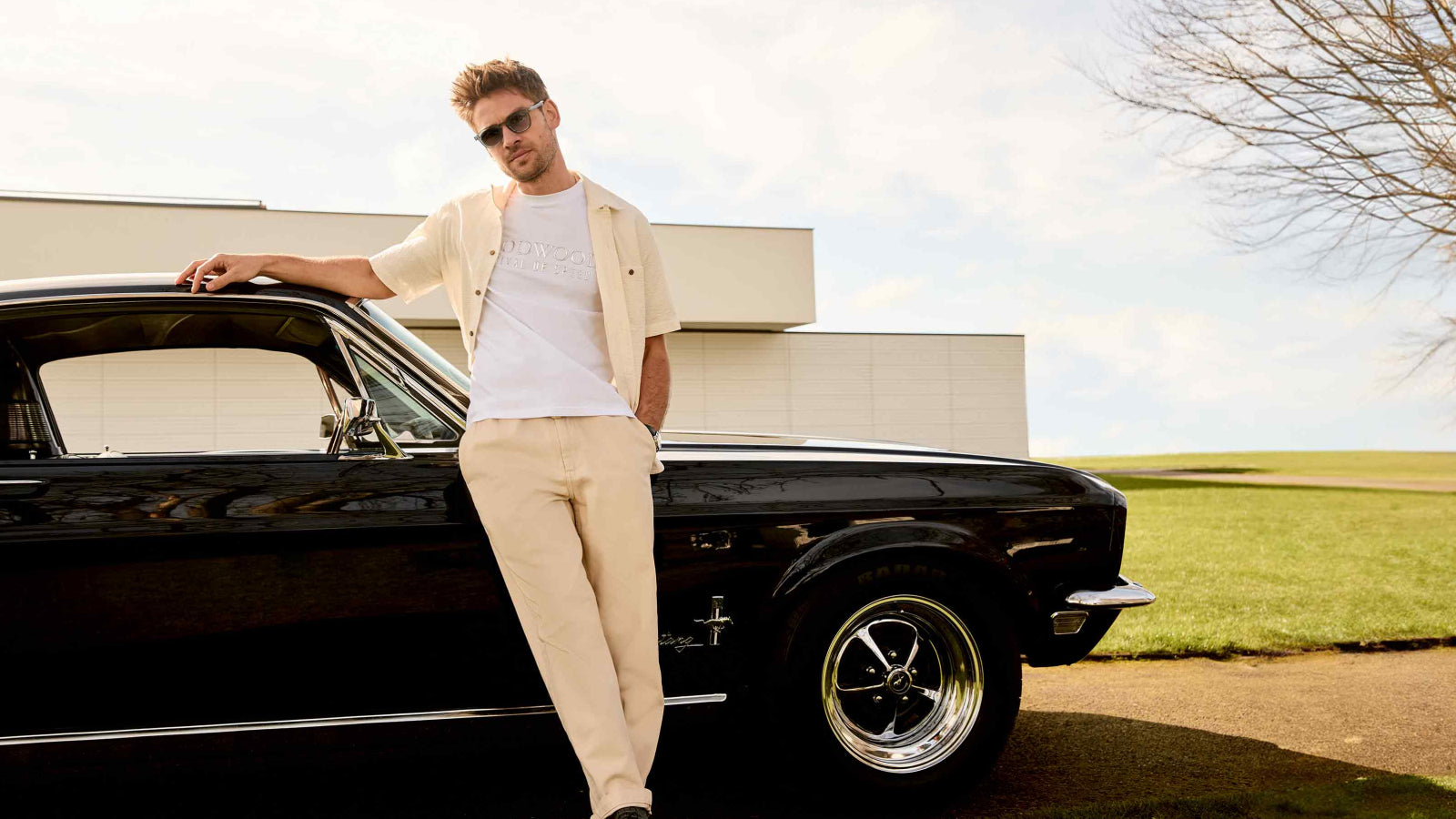
Aston Martin’s world title bid had gone up in a flash of flame and puff of smoke. Or that’s how it seemed in the shock of the moment.
Enter sterling Stirling Moss.
But for his insistence that Aston send one of its DBR1s to the Nürburgring 1,000km – and his subsequent recovery drive to victory after co-driver Jack Fairman had levered the car from a ditch – there would have been no bid. For team owner David Brown, Huddersfield’s tractors-and-transmissions tycoon, had eyes only for Le Mans.
Moss, in contrast, was no fan of that trial of pace and patience. He much preferred a tear-up, preferably against the odds, preferably against Ferrari. And he was determined to add another notch to his gear lever at Goodwood’s 1959 RAC Tourist Trophy.
His car cooked by a refuelling fire that cost co-driver Roy Salvadori his eyebrows, team manager Reg Parnell his suitcase – ‘with a rather sizeable chunk of the firm’s money inside’ – and threatened to raze the pits, Moss was plugged into the car originally slated for Carroll Shelby and Fairman to share.

The handsome DBR1’s spaceframe – the car was designed and styled by low-key Ted Cutting – was well-balanced and rugged, but its finicky 3-litre twin-cam straight-six was no match for Ferrari’s V12. And its gearbox, embarrassingly so for Mr Brown, was a heavy handful. For its final works hurrah, however, it had been transformed by the fitting of a flick-of-the-wrist Maserati transaxle.
It had become a genuine sportscar great.
Though its potential had been obvious immediately in the silky hands of Tony Brooks. His surprise but brilliant victory at the 1957 Nürburgring 1,000km, co-driven by the inexperienced but impressive Noël Cunningham-Reid – a nephew of Lord Mountbatten – had persuaded Moss to join the Feltham-based team for 1958.
Co-driven by Jack Brabham – never at his best in two-seaters and then unfamiliar with the world’s most difficult circuit – Moss reprised Brooks’ victory at the ’ring, an effort – 36 of 44 laps – that drained him even more than had his 1955 Mille Miglia win with Mercedes-Benz.
Elsewhere, however – at Sebring and the Targa Florio – that infernal gearbox had stymied him.

He was less bothered when a conrod let go at Le Mans after two hours spent as willing hare to Ferrari’s hounds. His win alongside Brooks in September’s RAC TT at Goodwood – an Aston Martin 1-2-3 in the absence of newly crowned champions Ferrari – rang a little hollow, the race having been shortened by two hours to four and thus eligible for half-points only.
And so, for 1959, Brown insisted his team concentrate on its F1 programme – much too little, far too late, as it turned out – and Le Mans.
A DBR1 had yet to finish/be classified at the latter – and had been roundly upstaged in 1958 by the second place of its DB3S predecessor, in the privateer hands of brothers Peter and Graham Whitehead.
Because Moss put his money where his mouth was he was allowed to take the original 1956 prototype to the Nürburgring, but all other extraneous endurance activity was avoided.
And much to Brown’s delight, this abstinence paid off.
Moss made his usual spring-heeled Le Mans run-and-jump getaway and this time lasted more than six hours before his engine dropped a valve.
But it was Scuderia Ferrari that faltered en masse on this occasion and Aston Martin who prevailed, its one-two courtesy of Salvadori/Shelby and Maurice Trintignant/Paul Frère.
Eleven weeks later, Aston Martin, Ferrari and Porsche, winners of the Targa Florio, arrived at Goodwood for a showdown over a full six hours.
Of those, Moss drove four-and-a-half, mostly flat out, to overcome the conflagration and Porsche’s cheeky mid-engined 1600, with its fewer fuel and tyre stops.
The only wonder was that this all-action man didn’t put out that fire himself.
Photographs courtesy of LAT Images
Aston Martin
dbr1
Stirling Moss


































































